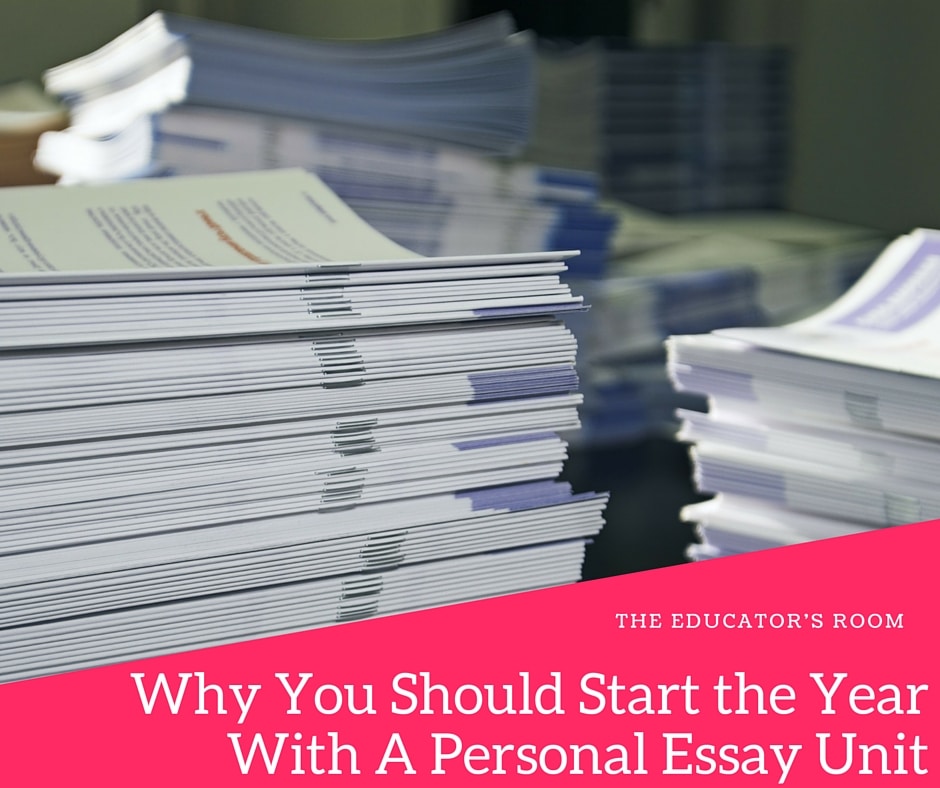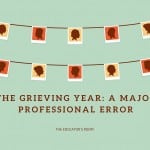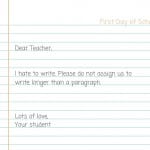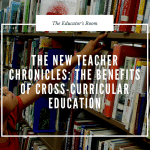I love teaching my personal essay unit. I developed most of the classes and exercises way back in 2005, and I have been tweaking them ever since. But I always sandwiched the unit in between two books in the spring or ended up rushing through it so I could finish before some vacation or other.
Two years ago, I got the idea to start off the school year with the unit. I’m not sure if my main motivation was just to switch things up, or what, but it was one of the best decisions that I made that year, and I wouldn’t want to go back to another year opener again.
These are the reasons why I recommend starting the year off with a personal essay unit.
Students learn many important elements of writing, right off the bat. I also like to get in an essay on a poem during the first quarter—something short, manageable, and deep enough that students can see the level of close reading that I will require of them for the rest of the year. I didn’t drop that. But as much as I get into a good close reading, not all students love to write about poetry, and I don’t always see what they are capable of.
By starting with a personal essay, I get them to understand so much more about the qualities of good writing. Meaningful detail and writing with a point are important for any kind of writing. Sentence structure and variety, word choice, paragraph structure and organization, original ideas and insightful observations, show don’t tell—all of these elements are worked into a successful personal essay. And since they choose their topic and they are telling their own story, they are usually more interested in getting it right.
Then, for the rest of the year, no matter if we are working on a creative writing exercise or a research paper or even a quick-write in class, we all share an understanding of those concepts. All I have to do is quickly remind them how much better their essays were when they added detail about the big game, for example, and they are writing with detail again.
They no longer see an author’s choices as arbitrary or just the teacher over interpreting meaning. I never fail to have at least a few students every year who argue that I’m making it all up, that there is no such thing as a deeper meaning in a text, that everything is arbitrary, and that the author never intended any of the ideas that we are interpreting. I think that part of the reason why they hold this belief is that they have never tried to convey meaning in writing themselves.
But when they choose a different word to describe the way they felt after a 20-mile hike, or when they add in a metaphor to describe the way they felt when they saw their grandfather in the hospital bed, or when they include some extra details about the dinner that their mom made for their eleventh birthday, they realize that every choice that an author makes is for meaning or effect. Writing is about conveying emotions, experiences, and ideas to a reader—and they finally understand that from the inside out.
It’s an easy assignment to grade early on. Yes, as much as I love a good poetry essay, when students struggle through the writing of one, I think that I feel their pain almost more than they do. They can be slow going, to say the least. When I’m still not quite ready to let go of summer, but I also need to get some writing grades in the book, a personal essay is the perfect transition.
The best reason for starting the year with a personal essay unit was that I get to know my students right away on a level that used to take me months. One kid wrote about the time when he crashed on his skis, so every time there was fresh snow, I had a little conversation starter with him. When I read the story of the girl who wrote about the time she had to help her brother who had stopped breathing in the car one day, I saw her as strong and resiliant—which, when she flipped her hair and said that she didn’t understand what we were reading, was not always the way that she seemed in class. And when I read the eight-page story of the girl who had been taken out of the custody of her addict parents, I was more willing to spend a little time with her in study hall, going over the classwork or just chatting.
And ultimately, as much as I value everything that I teach my students about paragraph structure or sentence beginnings, the most important factor for a successful school year is that I like and respect my students and that they know it.
The best way for me to do that is to learn their stories.
How do you get to know your students? How do you get beyond the gimmick at the beginning of the year?







